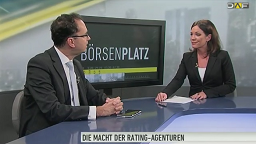« No Turmoils by European Ratings | Home | Marketingkonzepte für Einzelhandelsimmobilien »
DBRS Calls For Harmonization
Von Dr. Oliver Everling | 8.September 2008
In response to the request for comments made by the Commission regarding its Regulatory Proposals for CRAs, DBRS has submitted a letter to the Commission providing its views. The Regulatory Proposals for CRAs are intended to implement additional oversight and monitoring of CRAs in Europe through a broad regulatory framework requiring registration of CRAs and imposing an extensive array of requirements and limitations regarding the conduct of its business. These requirements relate to organizational processes and policies, corporate governance, conflicts of interest, rating methodologies, disclosure and transparency, employees and record-keeping. A second proposal for „tackling the problem of excessive reliance on ratings“ was also released for comment that reviews possible approaches to reduce such reliance including the elimination of references to ratings in existing EU legislation.
„DBRS does not object in principle to the introduction of an EU registration and supervision framework“, the Canadian rating agency with international ambitions says in a press release. „However, DBRS submits that any regulatory framework should be harmonized with other international regulatory frameworks for CRAs that promote high standards of independence, integrity and transparency such as the IOSCO Code of Conduct and the U.S. Securities and Exchange Commission’s regulatory regime for Nationally Recognized and Statistical Rating Organizations (NRSROs).“
Moreover, according to DBRS, the regulatory framework should permit the operation of CRAs of varying size and business models. „Further, DBRS notes that the Commission’s proposal to bolster CRA oversight and investor confidence in ratings is fundamentally at odds with its proposal to consider reducing reliance on ratings“, warns DBRS.
DBRS comments centre on the lack of global harmonization and inconsistency with best practices in other international markets. In addition, many of the proposed requirements are disproportionately burdensome to the objectives they seek to achieve, says DBRS, create unnecessary barriers to entry in the EU market and have other potential anti-competitive consequences.
Themen: Nachrichten | Kommentare deaktiviert für DBRS Calls For Harmonization
Kommentare geschlossen.
 Börse hören. Interviews zu aktuellen Ratingfragen im Börsen Radio Network. Hier klicken für alle Aufzeichnungen mit Dr. Oliver Everling seit 2006 als Podcasts.
Börse hören. Interviews zu aktuellen Ratingfragen im Börsen Radio Network. Hier klicken für alle Aufzeichnungen mit Dr. Oliver Everling seit 2006 als Podcasts.










